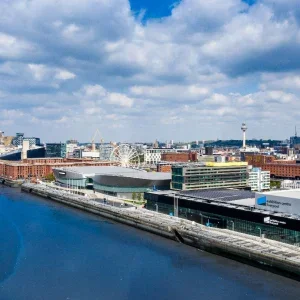KCI Konecranes has acquired UK crane and hoist manufacturer Morris Material Handling for £8.5m (Euro 12.1m). The company has 16 branches in the UK, 340 employees and generated £25m (Euro 35.6m) in its financial year ending June 2004.
KCI Konecranes, which also owns special crane builder Konecranes UK in Scotland, and crane service company Lloyds Konecranes in England, announced in January it had bought all the shares of Morris.
All three businesses will be headed up by newly-appointed country director Bill Maxwell. Maxwell also manages KCI Konecranes operations in Belgium, Luxembourg, the Netherlands and Denmark.
Steve Davis will stay on as managing director of Morris. He took over from Mike Maddock, who retired in September 2004. Maddock led a management buyout from P&H Harnischfeger of the USA in March 2001.
That the company was bought three months after Maddock’s retirement was only coincidence, Steve Davis told Hoist. ‘The timing of Mike Maddock’s retirement has been known for many years and had no impact on the decision to sell the shares to KCI Konecranes.’
Davis told Hoist that the business remained solvent, despite rumours of cash-flow problems.
‘Whilst the business could run comfortably within its current credit facilities, new funding and access to research and development was required to continue the development of the business in the longer term,’ Davis told Hoist. ‘The acquisition by KCI Konecranes will provide these resources.’
‘This acquisition should be viewed in a positive manner. The acceleration in the development of our product, enhanced procurement ability and financial stability can only be of benefit to our current and future customers,’ he said.
Konecranes’ Bill Maxwell told Hoist that the £8.5m purchase price included a ‘significant’ amount of debt. ‘Like all MBOs, they have got vultures on their shoulders,’ he said. ‘The main financiers get the first crack at the money, leaving less for product and technical development.’
He said that there were things that Konecranes could do immediately, such as reorganising the company’s purchasing. ‘We can get better financial deals, give more working capital so that it will stop paying finance companies that are bleeding it dry.’
‘We can deal with suppliers that would be reluctant to give Morris a credit rating in view of what happened last time. From that point of view the management of Morris can now focus on getting contracts and building cranes, not taking care of the finance.’
On the service side, there’s a lot of room for improvement there, improving the level of service. We have our own maintenance programmes and our own automated systems to help speed up the reporting process. We will probably be working on training to bring up the technicians to a higher level. Compared to Lloyds Konecranes, Morris is a little behind.
But long-term decisions are more difficult, Maxwell said. ‘When you buy something you need to look at it. You need to see what it is doing right. It is dead easy to see what Morris does wrong. But if you buy a company and start taking it apart, you end up destroying the good with the bad.’
He said that KCI Konecranes is planning to invest in manufacturing: ‘If they are going to continue to build cranes, we don’t want to continue to build them with a knife and fork.’
He also said that KCI Konecranes will improve the service network: ‘We will probably be working on training to bring up the technicians to a higher level. Compared to Lloyds Konecranes, Morris is a little behind.’
Davis reported that relationships with foreign businesses will continue. Steve Davis reports that exports account for 40-45% of sales revenue. ‘Future development of the business and development of the product offering will strengthen the position of the foreign distributors,’ he said.






